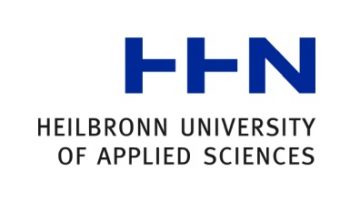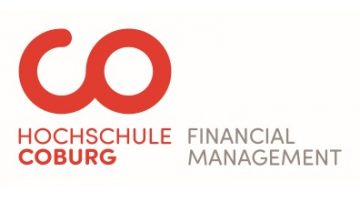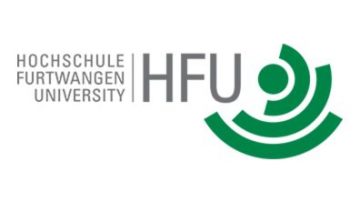"Urban Resilience Through Inclusion: Factoring in the Social Elements"

“Urban Resilience Through Inclusion: Factoring in the Social Elements” was the title of the urbanism meta-conference which shed light on the human factor in city planning and urbanism. The conference hosted various experts from fields of urban development, sociology and politics from Germany, Austria, Egypt and the MENA region. The event included different talks with the focus on project-specific presentations in the field of urban planning in correlation to inclusion/migration and heritage preservation as well as insights on enabling platforms and initiatives. The event took place online and welcomed about 40 guests online with the intention to offer a platform with a comprehensive view of exploring the dynamics of neighborhood change as well as the effects of this change on the city and region.
Isabell Mering, Director of the DAAD Regional Office Cairo, started her welcome address by pointing out the importance of urban resilience through inclusion as well as the “need for a deeper understanding of how discourse, institutions and urban form connect to self-organising urban systems, and how they can help create the conditions for social-ecological outcomes in accordance with political goals and aims on sustainability”.
Dr Maram Tawil (German Jordanian University) reflected in her keynote “Reclaiming Public Space through Intercultural Dialogue” how university institutions are part of community development by providing research findings to experts who further develop and adapt scientific insights into real-life community development activities. Furthermore, she elaborated the positive impact of having different intercultural perspectives concerning the outcome by “offering greater insights and fostering better discussions which are rich in content and quality”.
Adding to the previous speaker, Dr Deyala Altarawneh (University of Jordan) confirmed the importance of engaging students from an early age as part of the discussion and important stakeholder group within a research process. In her project presentation, Dr Altarawneh talked about the findings of the study project “Urban Mobility & Spatial Justice of Amman” conducted with Eng. Ahmed Zayed (AZHJ), which was supported by the Friedrich-Ebert-Stiftung Amman Office. The study focused on the dissatisfied experience of female users of transit transportation in developing countries. Dr Altarawneh presented examples of how spatial justice can be achieved to create a more positive environment within communities.
The next project presentation by Dr Nadine Scharfenort (University of Trier) talked about her personal experience and the research findings she gained in Doha. In “Large Scale Development Projects, Renewal, and Regeneration: Towards an Understanding of Neoliberal Urbanization Processes in GCC Cities”, Dr Scharfenort pointed out the cruciality of understanding actors and stakeholders in correlation to the people that are affected by upcoming renewal plans concerning sociological, economic and cultural shifts that are taking place when communities are forced to relocate. Although the presentation of Dr Scharfenrot focused on the example of Doha – moderator of the conference and Deputy Director of the DAAD Regional Office Cairo Fatma Soliman remarked that there are various common factors concerning ongoing shifts in Egypt while reflecting on the similarities of strategies and approaches among the different countries.
The event continued with Ms. Angelika Gabauer (TU Wien) presenting the open resource and soon-to-be-published book “Care and the City: Encounters with Urban Studies” aiming to understand and identify caring and uncaring spaces of urban society and its inequalities. Inspired from the various scientific angles of this collaborative research once again similarities to previously presented projects emerged.
With the presentation on “Urban Justice: Between formalization and aesthetics” Ms. Hala Makhlouf (Friedrich-Ebert-Stiftung Egypt Office) dove in the shift that is currently taking place in Egypt introducing the formal approaches. Along with discussing practices of this formalization process Ms. Fatma Soliman added that many of these aspects “are not only happening in Egypt, but throughout the entire world” commenting on the importance to be mindful towards the community when introducing these shifts.
After these first insightful and inspiring project presentations, the next part of the conference aimed to highlight enabling platforms and initiatives that are supporting research.
Dr Sarah Wessel (Berlin Center for Global Engagement/BCGE) presented the newly established research environment of the Berlin University Alliance and demonstrated its spectrum of work. The BCGE is fostering research initiatives that target crucial global topics while aiming to increase the visibility of research, fostering innovative research in thematic networks, building sustainable partnerships based on making Berlin a hub for new practices in knowledge and science diplomacy.
The COSIMENA project following similar aims as the BCGE, proved once again its role as an accelerator in connecting the scientific community, while during the Q&A session of Dr Wessel networking opportunities among the participating speakers got actively initiated with perspective to potentially collaborate in the future.
The next initiative “Egyptian Sustainable Urbanism Lab” got presented by Dr Moemen El Soudani (Mansoura University), who is one of the founders of the 2009 initiated project that focuses on connecting national and international efforts in the field of sustainable urbanism. The Egyptian Sustainable Urbanism Lab (ESU Lab) is a successful example of enhancing research and international cooperation in Egyptian universities while linking these synergies with the goal of practice and education purposes.
The last part of the event focused on project presentations focusing on urban planning and heritage preservation
With “The Place and the People” Dr Fatma Keshk (Freie Universität Berlin) presented her latest initiative raising awareness of local heritage through community engagement at the grass-root level.
Moving on with the themed project presentations Prof. Asmaa Aty (Effat University) talked about the project “Revitalization of historic city districts: Case of old Jeddah”. Following an excurse into her research, she discussed the general shift within global approaches and dynamics ignited by the UN-Sustainable Development Goals (SDGs) as well as the need for more scientific collaborations among different countries, with Germany as one of the leading accelerators in this field.
The last presentation of the conference presented by Ms. Hellen Aziz (TU Berlin) was titled “Not our land: An Analysis of a socially Dysfunctional community in El Fayrouz, Red Sea Region, Egypt”. While factors of community dissociation on this practice example got disclosed, the key finding proved that providing active engagement opportunities for marginalized community individuals is a method to make them feel integrated and contribute to an overall increased feeling of wellbeing.
The meta-conference reflected that there are various similarities between researchers and approaches among the different cities, countries and continents. This is also reflected in a shared interest within the various projects and initiatives as well as the active approaches emerging from the audience and participating speakers to initiate collaboration.





